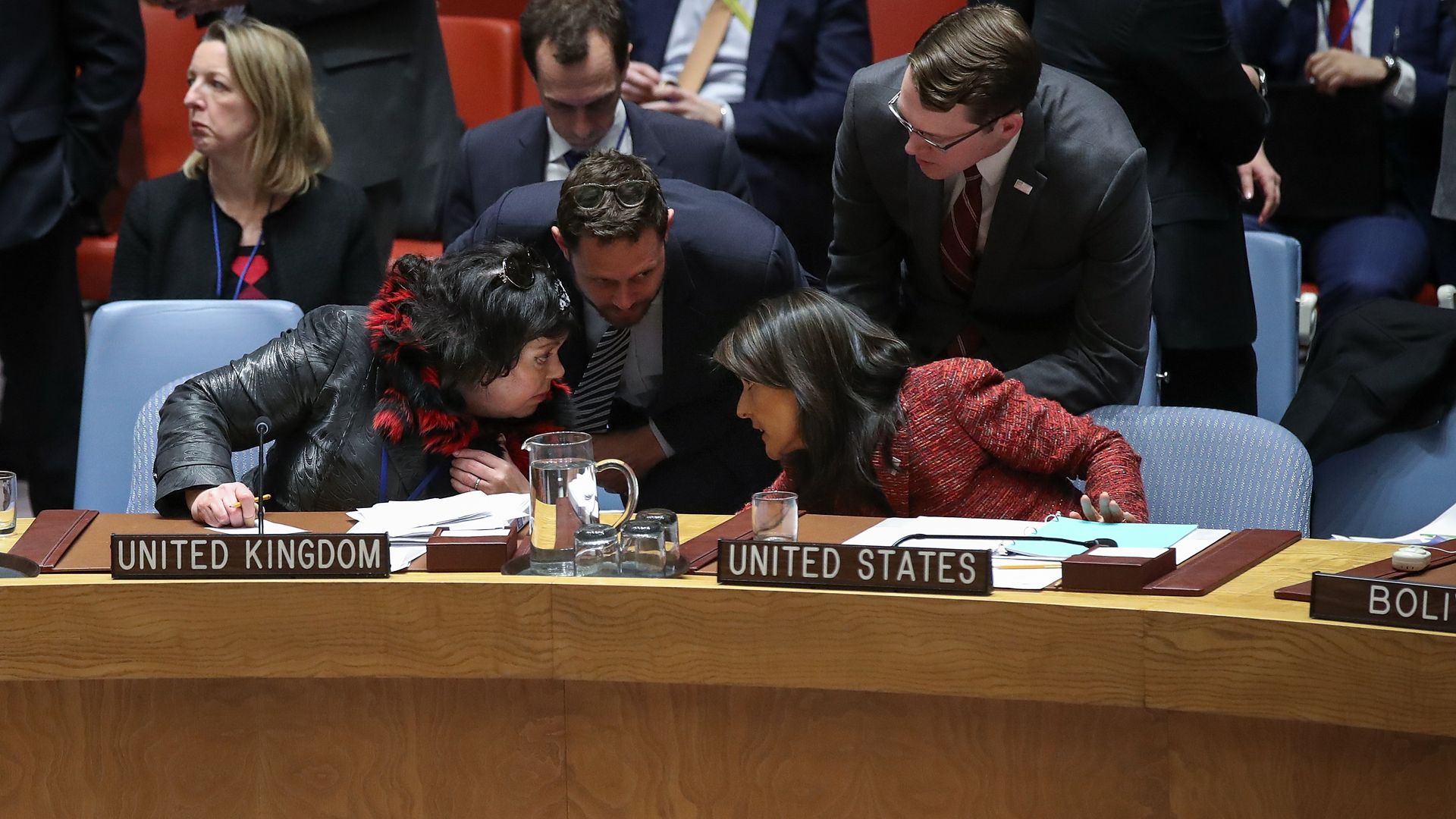Updated Apr 13, 2018 - World
Expert VoicesCivilian deaths in Syria require more than a military response
Add Axios as your preferred source to
see more of our stories on Google.

British Ambassador to the UN Karen Pierce talks with U.S. Ambassador to the UN Nikki Haley at a Security Council heaeing on April 10, 2018, about last week's chemical weapons attack in Douma, Syria. Photo: Drew Angerer/Getty Images
